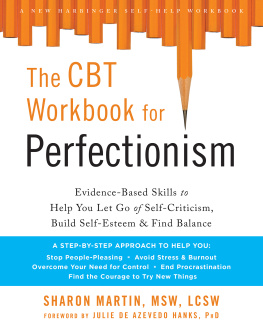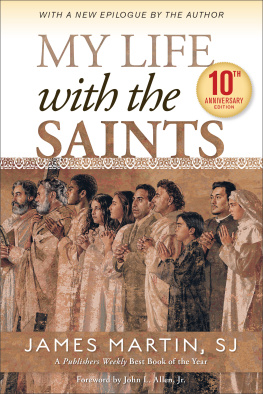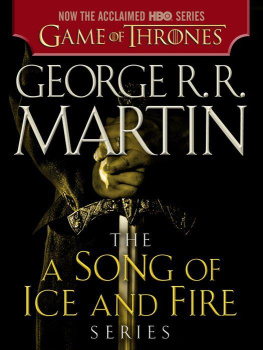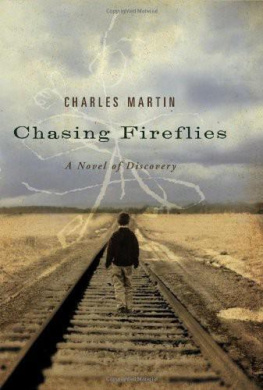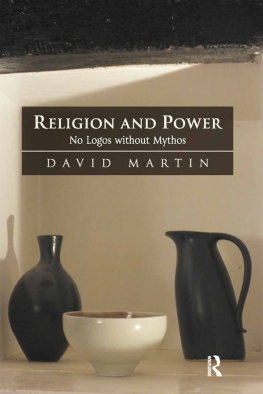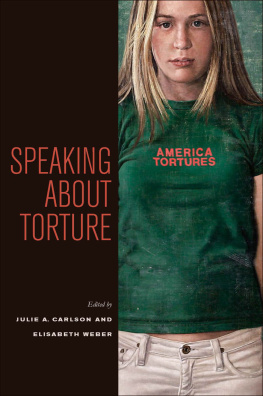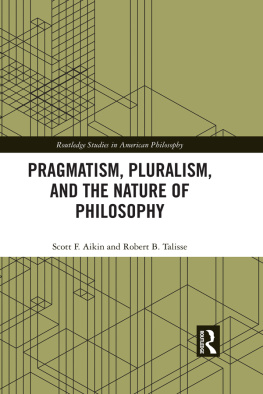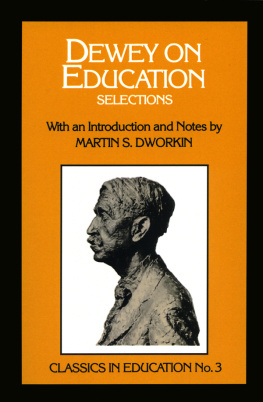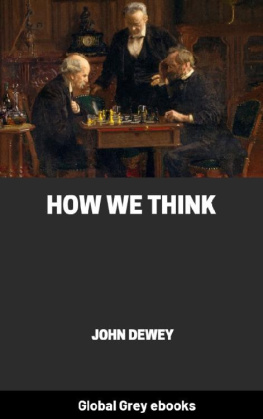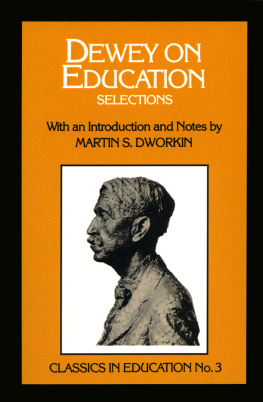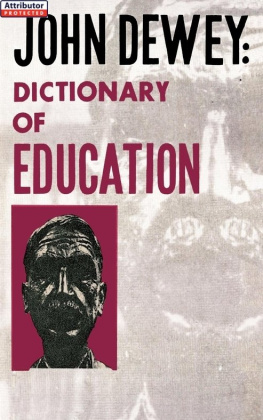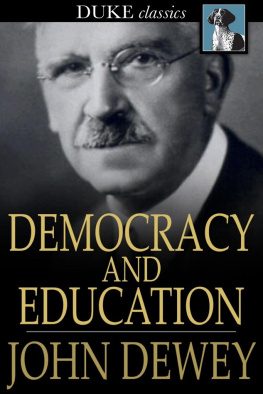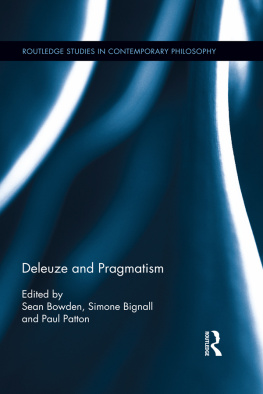THE EDUCATION OF JOHN DEWEY

Columbia University Press
Publishers Since 1893
New York Chichester, West Sussex
cup.columbia.edu
Copyright 2002 Jay Martin
All rights reserved
E-ISBN 978-0-231-50745-5
All photographs courtesy of:
Special Collections / Morris Library
Southern Illinois University, Carbondale,
except photograph of Alice Chipman (fig. 5)
courtesy of:
Collegiate Sorosis records
Bentley Library
University of Michigan
Library of Congress Cataloging-in-Publication Data
Martin, Jay
The education of John Dewey: a biography / Jay Martin
p. cm.
Includes biographical references and index.
ISBN 0231116764 (alk. paper)
1. Dewey, John, 18591952. 2. PhilosophersUnited StatesBiography. 3. EducatorsUnited StatesBiography.
I. Title
B945.D44 M29 2002
191dc21
[B]2002073883
A Columbia University Press E-book.
CUP would be pleased to hear about your reading experience with this e-book at .
To my beloved Helen
Your love fills everything
Criticism of philosophy must begin with the motives and interests which actuate the philosopher, not with problems of logical consistency and considerations of truth. The biographical element must be stressed if we are to study motives and interests of philosophers. We must know his temperament, his personal problems, times, biases, etc.... We must also take cognizance of the particular social environment of the philosopher, as well as his [experience and] native sensitiveness.
John Dewey, Lectures on Types of Philosophic Thought
Near the end of his life, Mr. Dewey spoke at an affair at Columbia; when the applause died down, he got up, not to take a bow, but to add a word of caution, to be a philosopher takes guts.
Jack C. Lamb, John Dewey: A Look Back

All biographies are interpretations of their subjects. The best biographers compose accounts that make use of every possible resource of representation that narrative can offer. They are concerned with a judicious dispersal of the facts of a life but also, much more important, with devising a form, a style, an attitude, and a perspective that can come as close as a book may do to paralleling the life of its subject. If this is done well enough, the book can truly resemble the man or woman it is describing.
The biographer is the lifes second author or, perhaps, its editor. A biography of John Dewey demands that its author represent Dewey as and how he lived. Because Deweys main occupation in life was thinking, his biographer must not only write about Deweys thought but also reflect and inquire with Dewey into the processes of thinking. Deweys main entry into the life of thought was through his emotions. He was not a thinking machine but a vibrant person-who-thought. His biographer can succeed only if he, too, conveys in his own narrative the continuous activity of Deweys strong emotions.
Dewey once said that the two sources of his happiness were his work (or play) of thinking and his family. His biographer must give attention to Deweys family, or the portrait of the thinker will be incomplete.
Dewey actively responded to the character and condition of the times in which he lived. His biographer, too, must represent the changing face of history during Deweys life. Because Dewey experienced a large part of his nations history and was enmeshed in it, so must his biography be.
Dewey was one person. But he prepared many faces to meet the opportunities offered by both his own inner capacities and the possibilities of his time and place. For philosophers, he was a philosopher, immensely learned and technically brilliant. For those people engaged with issues of education, whether experts in the field or anguished parents, he was the leading exponent of the new learning. For the citizenry, he was an advocate and combatant in the rough-and-tumble of American politics, public affairs, and public policy, as well as a powerful controversialist for liberal causes.
Dewey moved effortlessly from any one of these roles to the others. His biographer thus must be ready to portray his many activities and explain how they all emanated from one person. Deweys many faces are like the facets of a crystal that, as it turns, reflect the various angles of a single life.
My biography of John Dewey is constantly in motion, just as he was. Deweys life was his best education. By making his life an inquiry, he did not so much find meaning as he made meaning. In this book I move from one facet of Deweys life to anotheras son and brother, husband and father, student and professor, contemplative philosopher and political activist, educator and disputant, a man of deep thought and of yet more profound emotions, a person accustomed to joy yet one who was sometimes plunged into excruciating misery.
By inquiring into Deweys life, I have made meanings of which he himself might not have been aware. It is the province and privilege of a biographer to create meanings, and meanings in turn create values. Yet I have attempted to be as true to Deweys activities as possible: writing as a philosophic commentator about his thought; as a historian about his times and his involvement in them; as a psychologist examining the shape and form of his habits and arrests in development as well as his creative advances; as a political scientist to represent his active engagements in politics; as a remembrancer of his family and his affectionate involvements; and, above all, as a guarded optimist who believes that his life was worth living once and is worth saving now.
Biographers have a privileged knowledge that is hidden from their subjects. They know how their subjects life turns out before beginning to write about it. Biographers are not the slave of time but are free to move their narrative backward and forward in order to convey the meaning of their subjects life. This book is not identical with its subject; it merely condenses Deweys life into a few hundred pages. Still, I dare to hope that I have constructed this biography in such a way that my portrait of Dewey will disclose his person.
Dewey made his life. He continually learned what he was making precisely by making it. Using the bricks of style, the architecture of form, and the ever refocused camera of perspective, I have remade his life. If I have done it well enough, Dewey will breathe again and renew his life in these pages.
In 1856 Archibald Sprague Dewey, grocer, and Lucina Artemisia Rich Dewey, his wife, became the parents of a boy. They named him John Archibald, after his father. A second son was born two years later and was named Davis Rich after Lucinas father. Both boys flourished. Then, on January 17,1859, there was a tragic accident. The Burlington, Vermont, Daily Free Press carried the news:
Distressing Accident.We learn, with pain, that our friend and townsman, A. S. Dewey, has lost his oldest child by a distressing casualty. The child, a fine little boy, between two and three years old, was fatally scalded last evening, by falling backward into a pail of hot water. The customary appliance of sweet oil and cotton batting was made, when, by some accident the cotton took fire, and burst into flames upon the person of the child. The last mishap added to the pain of the little sufferer, as well as to his parents distress, and death resulted (from the scalding principally, as we understand), about seven oclock this morning. The afflicted parents have the sincere and tearful sympathy of the community, in their sudden and most painful bereavement.
Next page

